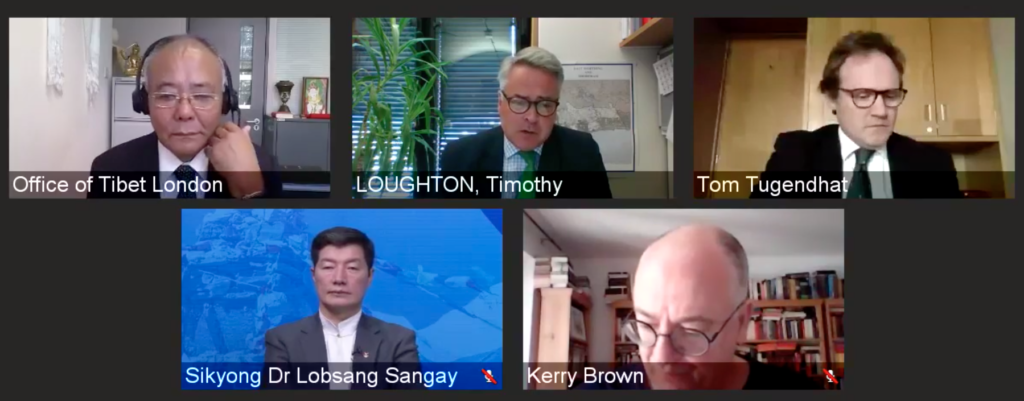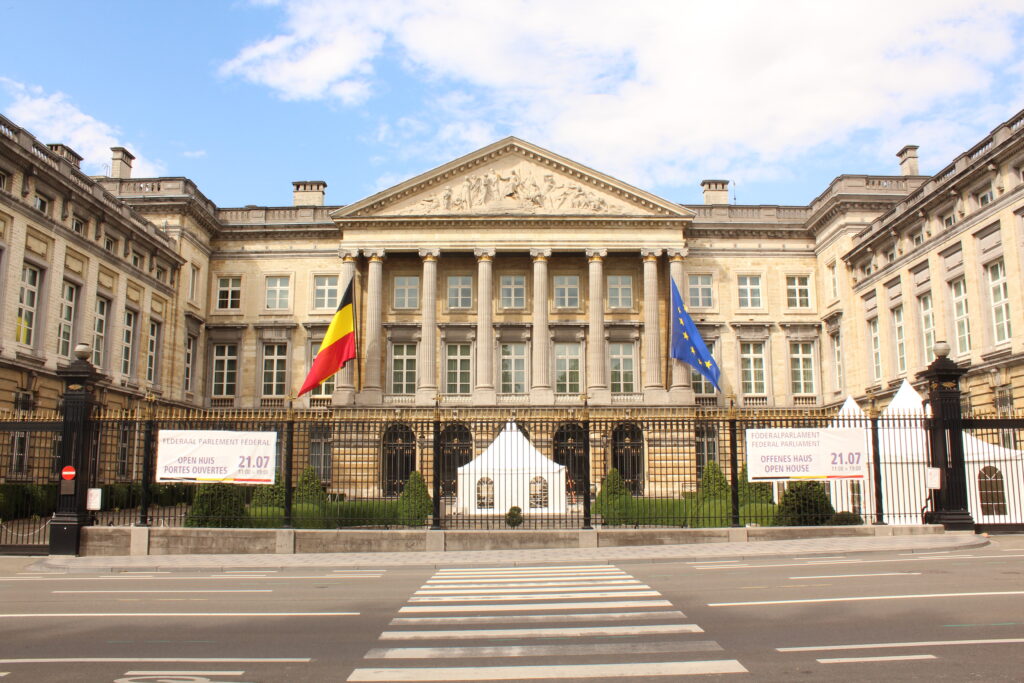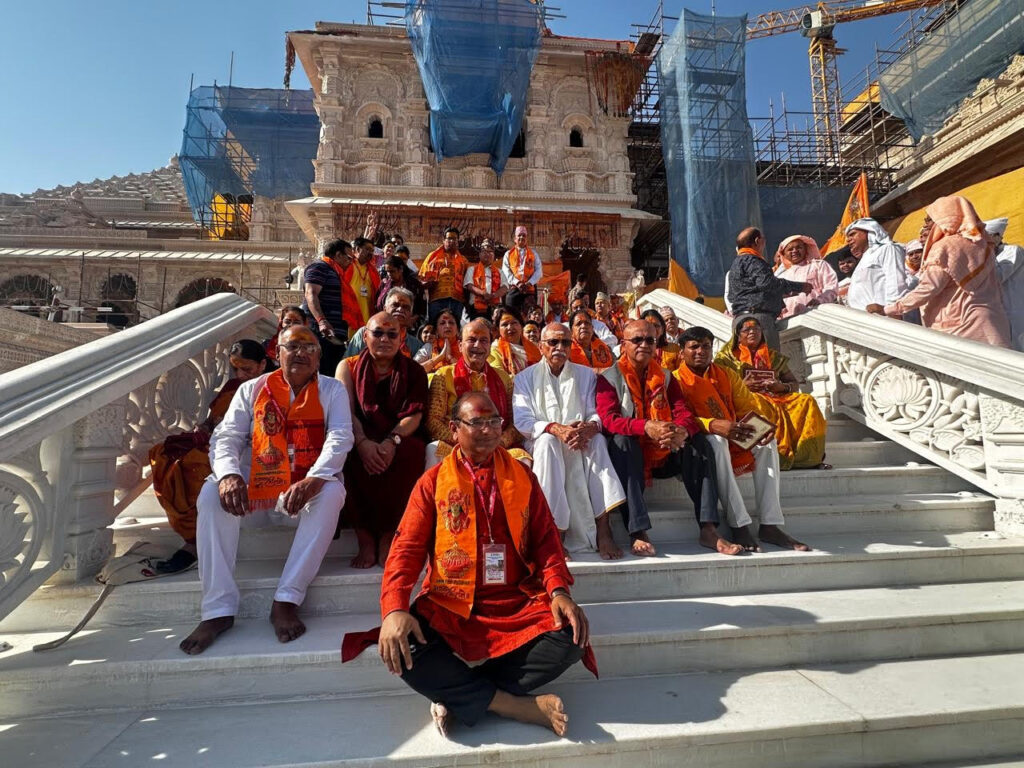Dharamshala: In a webinar organised by the Office of Tibet, London on Monday 20th July, eminent panellists, with authority and expertise in their respective professions, discussed Tibet and Hong Kong in the wake of China’s passing of the national security law for Hong Kong.
Dr. Lobsang Sangay, President of the Central Tibetan Administration, in his opening remarks said, in 1951, China signed the 17-point agreement with Tibet which is essentially one country two systems. The Tibetan delegates went to Beijing with the intention that the agreement would be signed as equal partners which did not happen and the representatives of Tibet had to signed the agreement under duress. Despite everything, the provisions of 1951 agreements were violated and all the promises made to Tibetans were denied including regional autonomy, uninterrupted position, and authority of His Holiness the Dalai Lama, promotion of Tibetan language, etc. In 1954, His Holiness the Dalai Lama visited Beijing to persuade the Chinese leaders like Mao Zedong and Zhou Enlai to grant Tibet the autonomy as promised in the agreement. But his efforts were futile.
In 1956, His Holiness visited India to participate in the 2500 anniversary of Buddha Purnima and that time His Holiness’s initial wish was to stay in India but the then Chinese Premier Zhou Enlai came to India thrice and persuaded His Holiness to return to Tibet. Once again he made hollow promises regarding the implementation of the 17 point agreement. With that assurance, His Holiness returned to Tibet. What happened following His Holiness return to Tibet is history known to everyone.
Dr Sangay added that China also promised Tibetan peace and prosperity through its expansionist policy which afterwards turned into treachery and tension, the beginning of the downfall of Tibet. During the extreme period of tension, there were discussions and debates within the elite circle as to whether the presence of Chinese in Tibet is beneficial or not. In a way, they were seeking to curb the tension through elite cooptation a strategy that is now familiarised in Hong Kong.
“Our experience has been tragic and now Hong Kong is going to be Tibet number 2. It’s unfortunate and our solidarity is with Hong Kong people,” he assured.
Tom Tugendhat MP, Chairman of Foreign Affairs Select Committee, in his remarks referred to the changing relationship between the United Kingdom and China in recent years, citing the example of the UK government’s Huawei decision.
The relationship between the UK and China has become significantly worse than it was since Xi took over as the President. Xi has made it harder and harder for countries like the Uk to deal with. As far as the UK is concerned there are very obvious touchstones most obvious is Hong Kong to whom the UK has a remaining obligation under the Sino-British Joint Declaration recognising and granting residency to almost 3 million eligible Hong Kong citizens. He also highlighted the grave about China’s attempt to influence academic freedom in the UK. He expressed alarm over the London Chinese embassy’s role in organising different protests and pressurizing Chinese students and their parents in mainland China thereby undermining independence in academic excellence in some of the UK’s finest institutions.
MP Tim Loughton, Co-Chair of All-party Parliamentary Group for Tibet in the UK, touched on many subjects including the case of Huawei and his recent presentation of Tibet Reciprocal Access bill in the House of Commons. He said that after a lot of pressure, Huawei no longer going to provide the next generation of telecom in the UK.
He also mentioned China’s subtle yet effective influence in the UK boardrooms and expressed great concern about China’s growing influence on university campuses through Confucius Institutes. He acknowledged these institutions as the mouthpiece of China’s propaganda.
He also highlighted the unfolding Hong Kong issues and affirmed what is seen there is very much like salami slicing of’ rights and liberty’ of the people of Hong Kong. He informed about an expected statement in the UK House of common where it is likely that the extradition agreement between Britain and Hong Kong would be held suspended. He calls it a ‘tangible move’.
As for the Reciprocal Bill that MP Loughton introduced in the House of Common last year, he said that he was greatly inspired by the US who first brought in the legislation.
“I took that piece of legislation and had it rewritten in the House of Common to suit the UK legislation and reintroduced it as private members bill”.
“The legislation surely had a significant impact on China as various US Congress members including Marco Rubio, Ted Cruz, and others have all been banned from entering China. I, therefore, want to continue pushing for measures such as this to show China that we are absolutely serious so that China cannot go on threatening countries into submission,” he said.
In his concluding remarks, MP Loughton stated that in all the prevailing situations, it is important to not lose sight of the ongoing and long-standing atrocity and repression still taking place in Tibet.
Professor Kerry Brown, Director of the Lau China Institute at King’s College, London highlighted three issues: Geopolitics, Opportunity, and Domestic issues in China. Professor mentioned that in his assumption China’s recent issues/clashes with America, Europe, UK, and Australia is very much unplanned. He further mentioned that because of high awareness of Xinjiang suppression the Tibet issue is receiving a greater awareness because the party secretary in Xinjiang was the party secretary of Tibet and that assures the replication of security measures and methods used in Tibet are now being used in Xinjiang today. In his final remarks, professor Kerry stated that the spotlight on the domestic issues in china as per his assessment is that the standardisation of ethnic minorities. That the ethnic minority issues are absolutely part of the security framework, a domestic policy framework which has no space for meeting other ethnic groups.
The panellists later took questions from the online audience which was read out to them by Representative Sonam Tsering Frasi who moderated the panel. Despite a minor technical glitch the discussion overall managed to highlight the eerie similarities of China’s aggressive moves in Hong Kong today to what China did to Tibet.
-Filed by Office of Tibet London with additional reporting by Tibet.net






